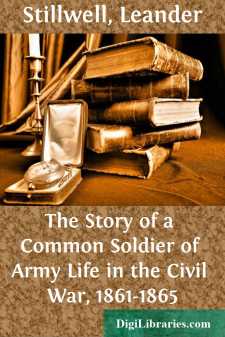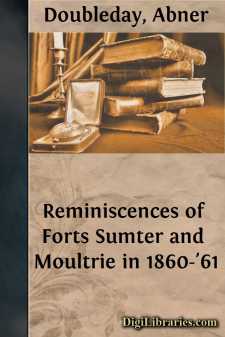Categories
- Antiques & Collectibles 13
- Architecture 36
- Art 48
- Bibles 22
- Biography & Autobiography 813
- Body, Mind & Spirit 142
- Business & Economics 28
- Children's Books 15
- Children's Fiction 12
- Computers 4
- Cooking 94
- Crafts & Hobbies 4
- Drama 346
- Education 46
- Family & Relationships 57
- Fiction 11828
- Games 19
- Gardening 17
- Health & Fitness 34
- History 1377
- House & Home 1
- Humor 147
- Juvenile Fiction 1873
- Juvenile Nonfiction 202
- Language Arts & Disciplines 88
- Law 16
- Literary Collections 686
- Literary Criticism 179
- Mathematics 13
- Medical 41
- Music 40
- Nature 179
- Non-Classifiable 1768
- Performing Arts 7
- Periodicals 1453
- Philosophy 64
- Photography 2
- Poetry 896
- Political Science 203
- Psychology 42
- Reference 154
- Religion 513
- Science 126
- Self-Help 84
- Social Science 81
- Sports & Recreation 34
- Study Aids 3
- Technology & Engineering 59
- Transportation 23
- Travel 463
- True Crime 29
Sort by:
PREFACE. No apology will be required from the author for presenting to the public some episodes in the useful career of a self-made man; and while the spirit of patriotism continues to animate the sturdy sons of America, the story of one of them who has exemplified this national trait in a conspicuous measure, will be deemed not unworthy of record. The lessons it teaches, more especially to the young,...
more...
PREFACE. "Greek-fire has shivered the statue of John C. Calhoun in the streets of the City of Charleston,"—so the papers say. Whether true or not, the Greek-fire of the righteous indignation of a loyal people is fast shattering the offspring of his infamous teachings,—the armed treason of the South, and its more cowardly ally the insidious treachery that lurks under doubtful cover in the...
more...
CHAPTER I. THE BEGINNING OF THE WAR. LIFE AT CAMP CARROLLTON, JANUARY AND FEBRUARY, 1862. I was born September 16, 1843, on a farm, in Otter Creek precinct, Jersey County, Illinois. I was living with my parents, in the little old log house where I was born, when the Civil war began. The Confederates fired on Fort Sumter on April 12, 1861, and thus commenced the war. On April 15, 1861, President Lincoln...
more...
by:
Abner Doubleday
CHAPTER I. FORT MOULTRIE IN 1860. The Garrison of Fort Moultrie.—Early Indications of Secession.—Situation of the Fort.—Edmund Ruffin and Robert Barnwell Rhett.—The Secretary of War.—Arms sent to the South.—Colonel Gardner.—Captain Foster ordered to Charleston Harbor.—The Officers at Fort Moultrie.—Communications with Northern Men by Cipher.—Proscription of Antislavery Men in...
more...
by:
Warren Olney
Very interesting descriptions of the great battles of the late war, written by prominent generals, have been lately published and widely read. It seems to me, however, that it is time for the private soldier to be heard from. Of course, his field of vision is much more limited than that of his general. On the other hand, it is of vital importance to the latter to gloss over his mistakes, and draw...
more...
FIRST LESSONS; OR, DOING THE IMPOSSIBLE I was appointed adjutant of the One Hundred and Thirty-second Regiment, Pennsylvania Volunteers, by our great war Governor, Andrew G. Curtin, at the solicitation of Colonel Richard A. Oakford, commanding the regiment, my commission dating the 22d day of August, 1862. I reported for duty to Colonel Oakford at Camp Whipple, where the regiment was then encamped, on...
more...
by:
Edward Duffy
During the latter part of October, 1862, negotiations were made by which the 167th Regiment, Colonel Homer A. Nelson, in Camp at Hudson, was consolidated with the 159th Regiment, Lieutenant-Colonel Edward L. Molineux, in camp at Brooklyn. The consolidated Regiment was designated the 159th, Colonel Nelson retaining command. The Regiment left "Camp-Kelly," Hudson, on the 30th day of October,...
more...
NOVEMBER, 1862. Secretary Chase — French Mediation — the Decembriseur — Diplomatic Bendings. November 18.—In the street a soldier offered to sell me the pay already several months overdue to him. As I could not help him, as gladly I would have done, being poor, he sold it to a curb-stone broker, a street note-shaver. I need not say that the poor soldier sustained a loss of twenty-five per cent....
more...
CHAPTER I. 1861.—Enthusiasm of the North.—Washington Threatened.—Bull Run, and Its Lessons.—General Scott and the Cavalry.—Enlistment under Captain Buel.—Harris Light Cavalry.—Leaving Troy, New York.— Captain A. N. Duffié.—Drilling and Fencing at Scarsdale, New York.—Bound for the Seat of War.—Philadelphia.—Baltimore.—Washington.—Camp Oregon. The eleventh of April, 1861,...
more...
A NEW REGIMENT GOES TO THE WAR. Organization of the Seventy-seventh N. Y. V.—Departure from Saratoga—Greetings by the way—New emotions—The noble dead—On board the Knickerbocker—At New York—Presentation of flags—Beauties of monopoly—Hospitality of Philadelphia—Incidents on the route—Arrival at Washington—In camp. Our regiment was organized at Saratoga Springs, the historic scene...
more...











